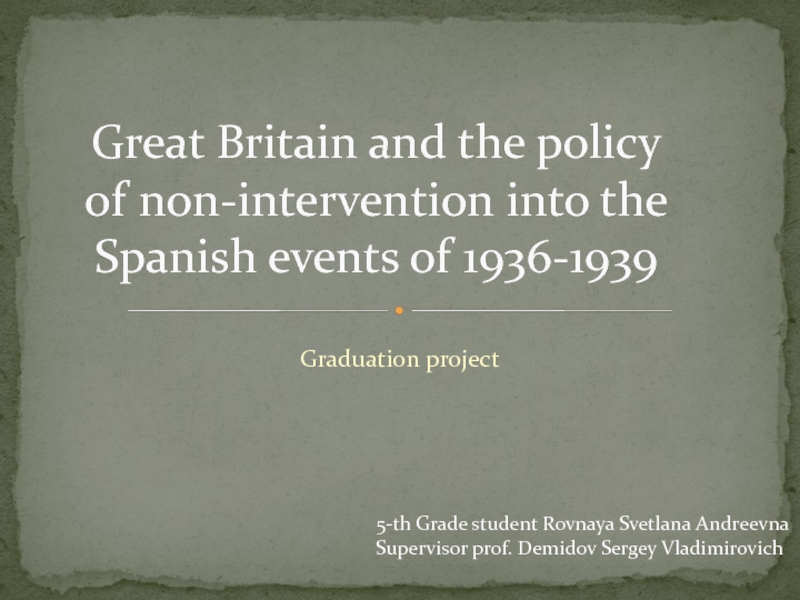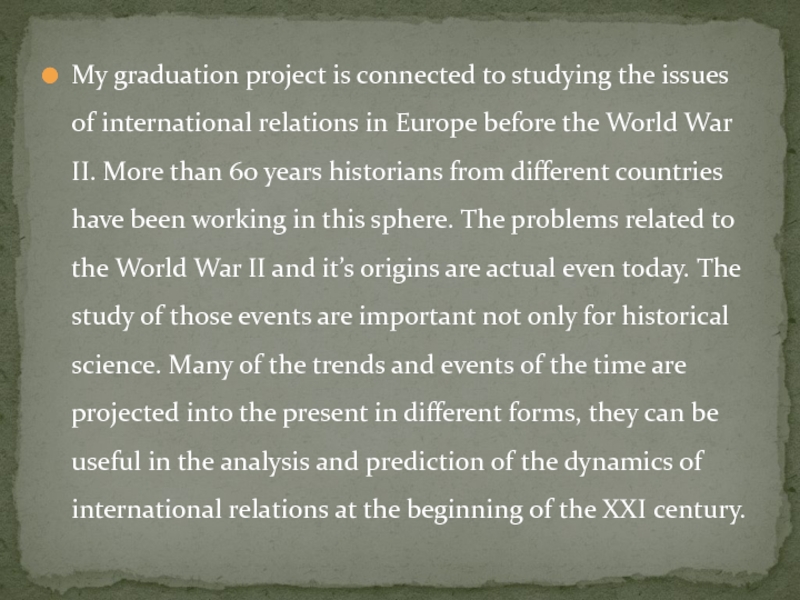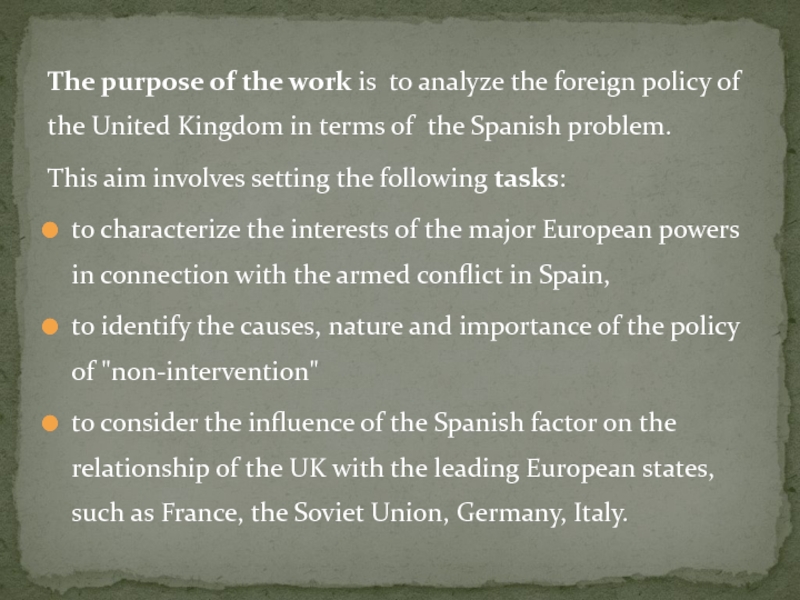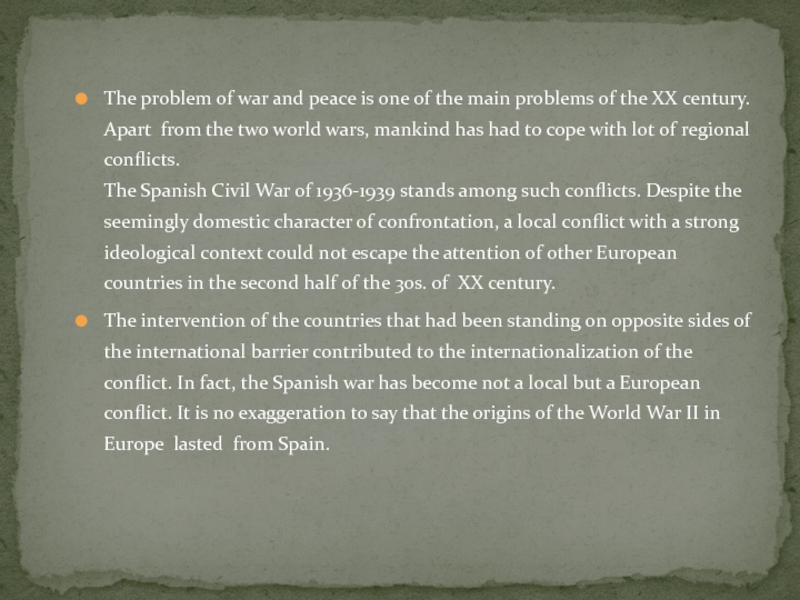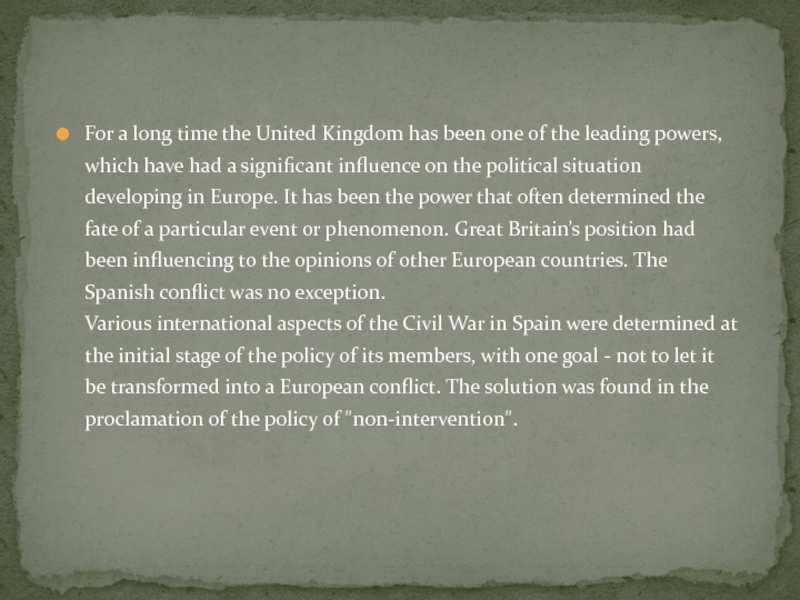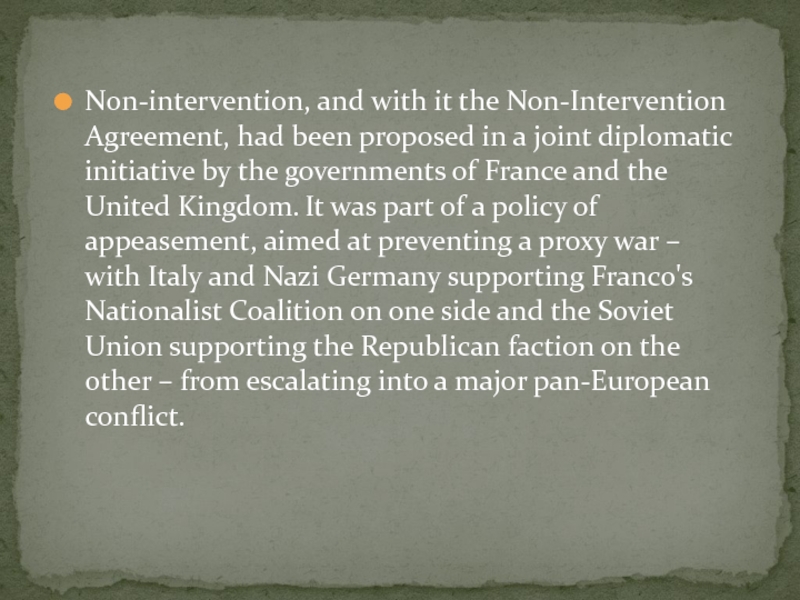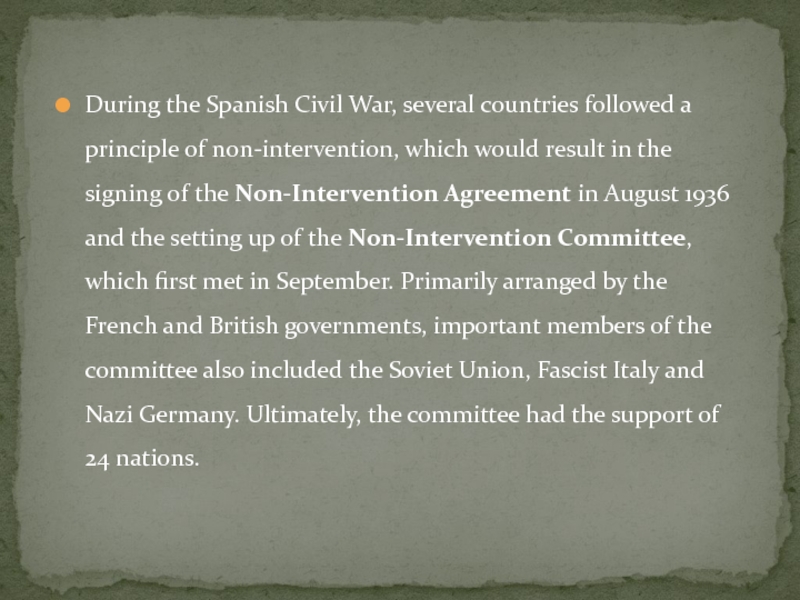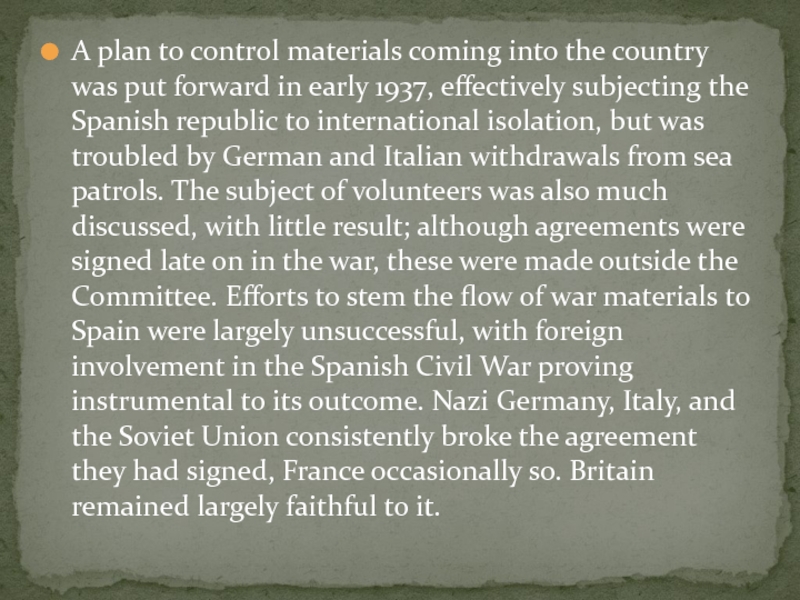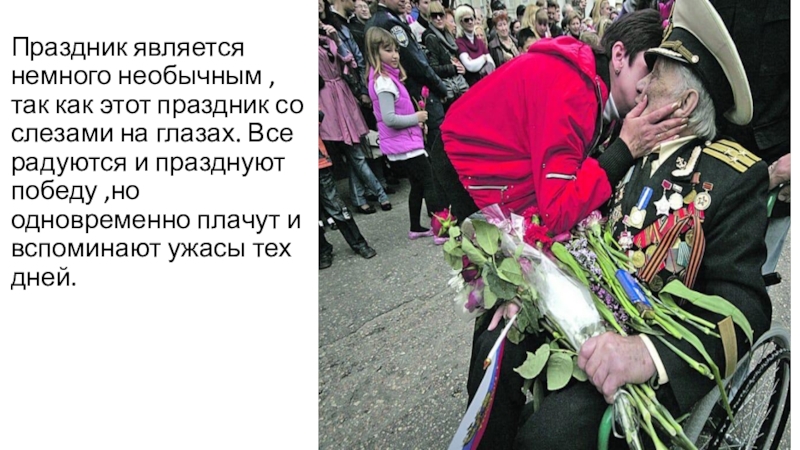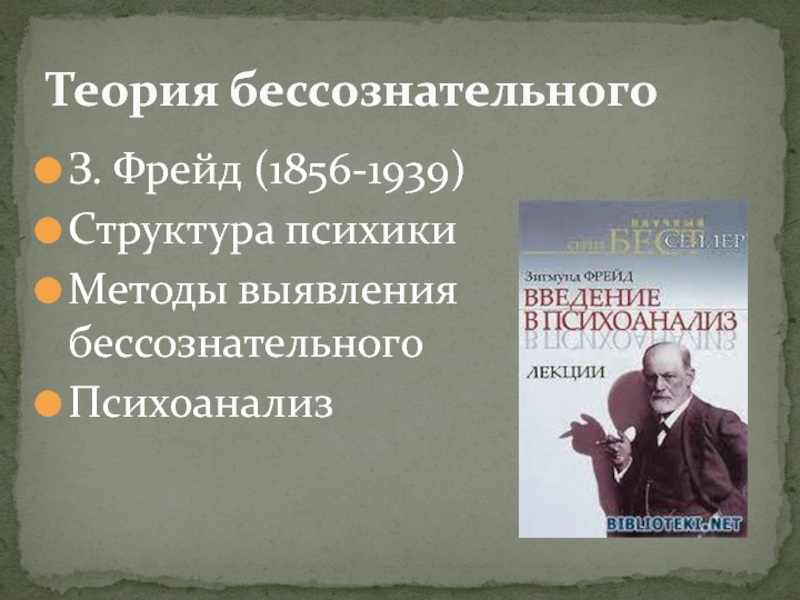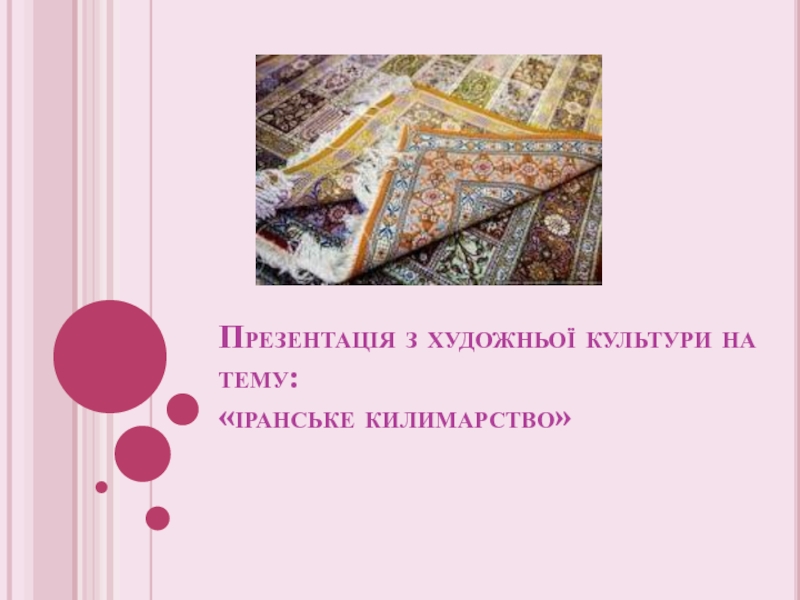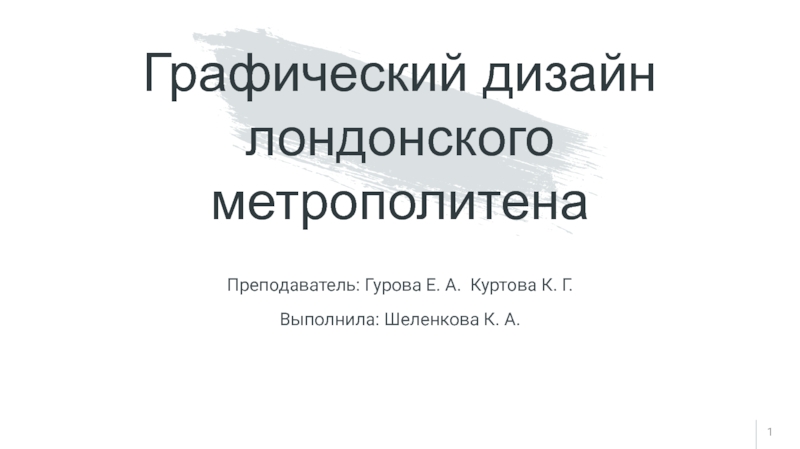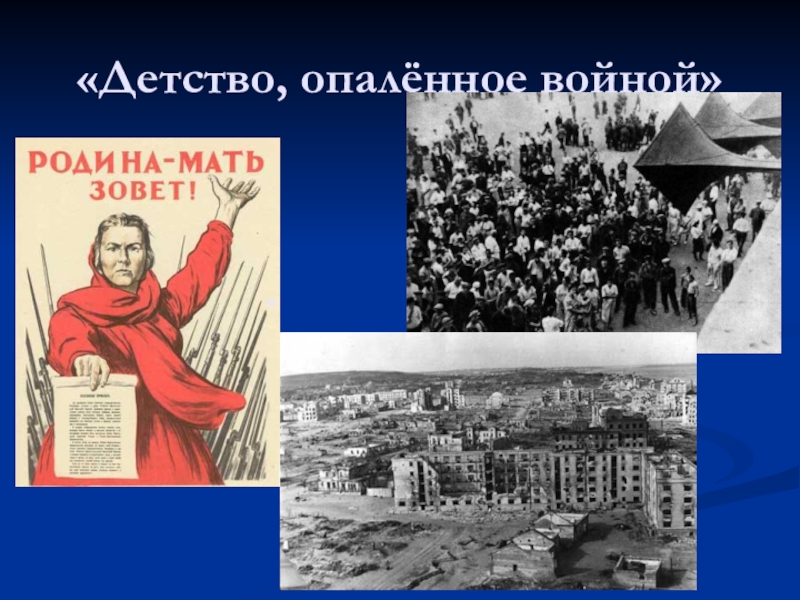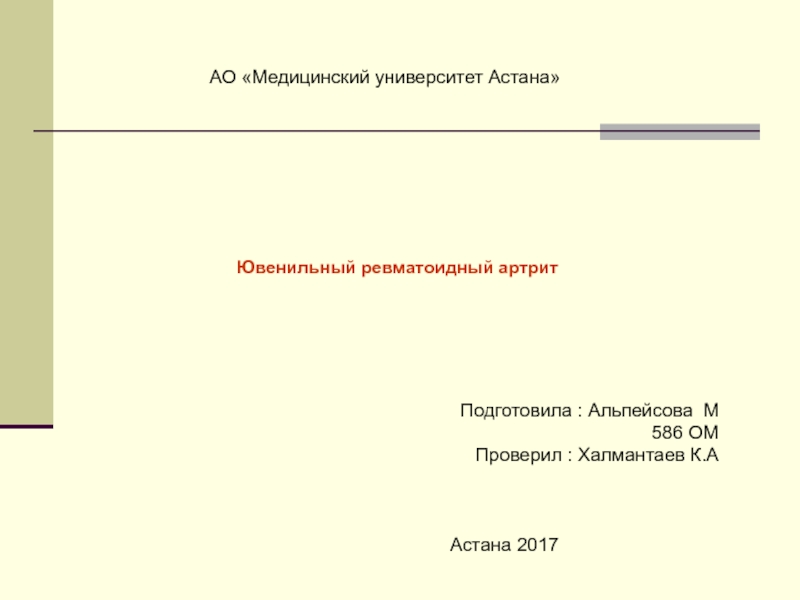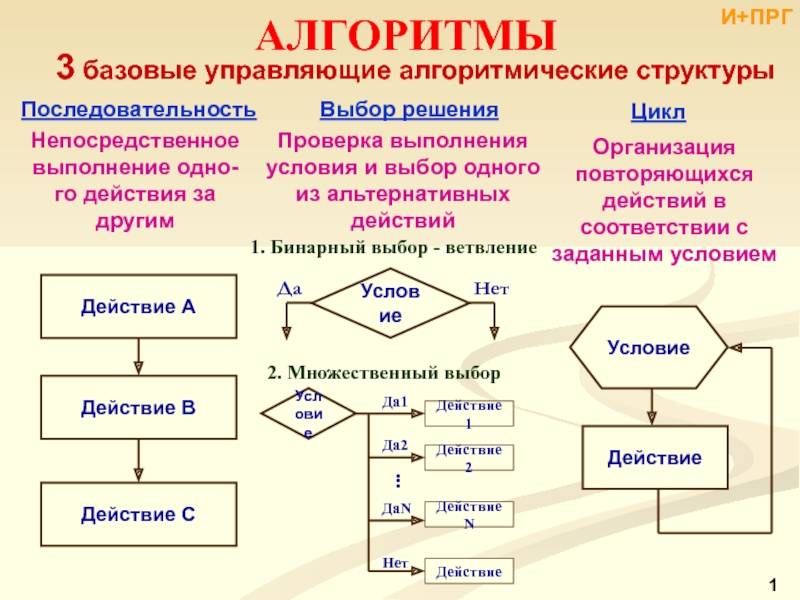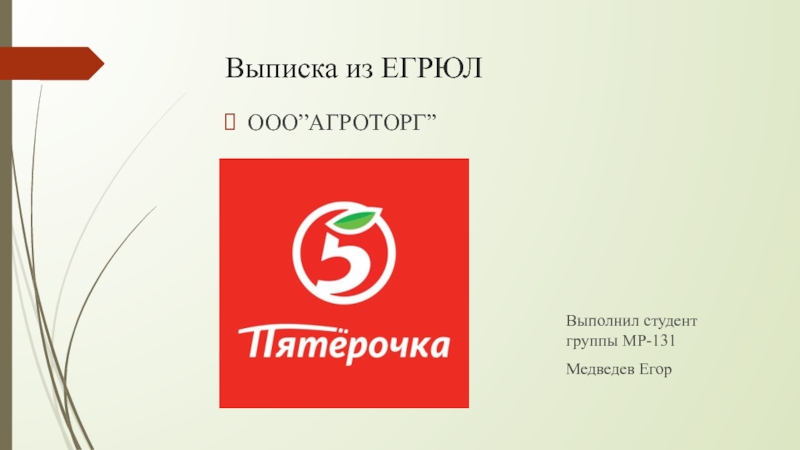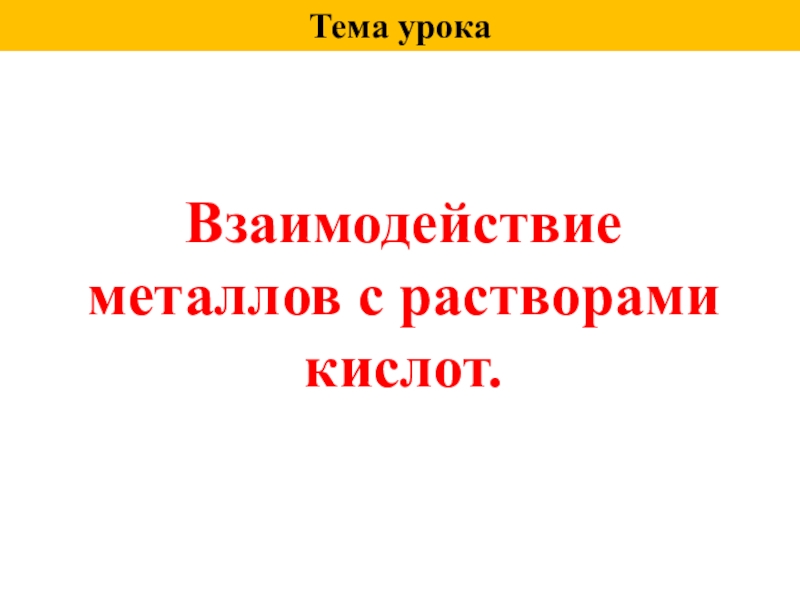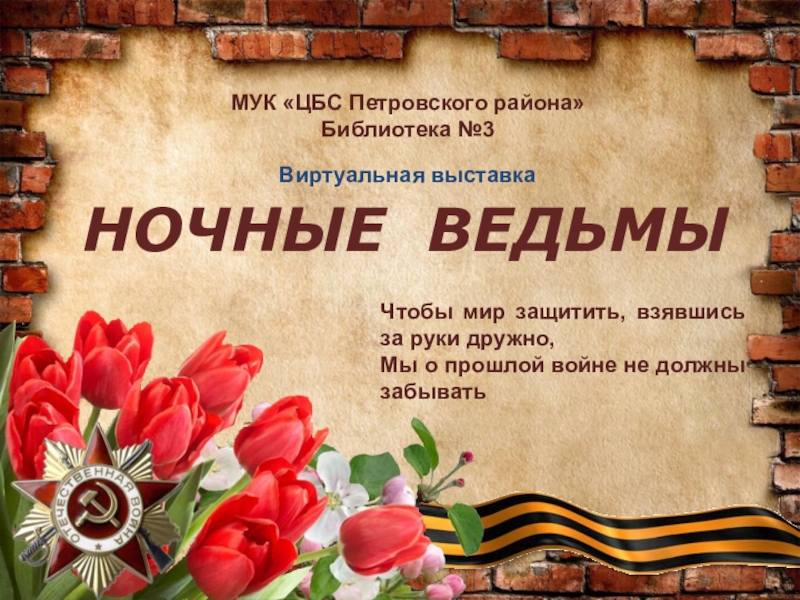Разделы презентаций
- Разное
- Английский язык
- Астрономия
- Алгебра
- Биология
- География
- Геометрия
- Детские презентации
- Информатика
- История
- Литература
- Математика
- Медицина
- Менеджмент
- Музыка
- МХК
- Немецкий язык
- ОБЖ
- Обществознание
- Окружающий мир
- Педагогика
- Русский язык
- Технология
- Физика
- Философия
- Химия
- Шаблоны, картинки для презентаций
- Экология
- Экономика
- Юриспруденция
Great Britain and the policy of non-intervention into the Spanish events of
Содержание
- 1. Great Britain and the policy of non-intervention into the Spanish events of
- 2. My graduation project is connected to studying
- 3. The purpose of the work is to
- 4. The problem of war and peace is
- 5. For a long time the United Kingdom
- 6. Non-intervention, and with it the Non-Intervention Agreement,
- 7. During the Spanish Civil War, several countries
- 8. A plan to control materials coming into
- 9. Скачать презентанцию
My graduation project is connected to studying the issues of international relations in Europe before the World War II. More than 60 years historians from different countries have been working in
Слайды и текст этой презентации
Слайд 1Graduation project
Great Britain and the policy of non-intervention into
the Spanish events of 1936-1939
prof. Demidov Sergey VladimirovichСлайд 2My graduation project is connected to studying the issues of
international relations in Europe before the World War II. More
than 60 years historians from different countries have been working in this sphere. The problems related to the World War II and it’s origins are actual even today. The study of those events are important not only for historical science. Many of the trends and events of the time are projected into the present in different forms, they can be useful in the analysis and prediction of the dynamics of international relations at the beginning of the XXI century.Слайд 3The purpose of the work is to analyze the foreign
policy of the United Kingdom in terms of the Spanish
problem.This aim involves setting the following tasks:
to characterize the interests of the major European powers in connection with the armed conflict in Spain,
to identify the causes, nature and importance of the policy of "non-intervention"
to consider the influence of the Spanish factor on the relationship of the UK with the leading European states, such as France, the Soviet Union, Germany, Italy.
Слайд 4
The problem of war and peace is one of the
main problems of the XX century. Apart from the two
world wars, mankind has had to cope with lot of regional conflicts. The Spanish Civil War of 1936-1939 stands among such conflicts. Despite the seemingly domestic character of confrontation, a local conflict with a strong ideological context could not escape the attention of other European countries in the second half of the 30s. of XX century.The intervention of the countries that had been standing on opposite sides of the international barrier contributed to the internationalization of the conflict. In fact, the Spanish war has become not a local but a European conflict. It is no exaggeration to say that the origins of the World War II in Europe lasted from Spain.
